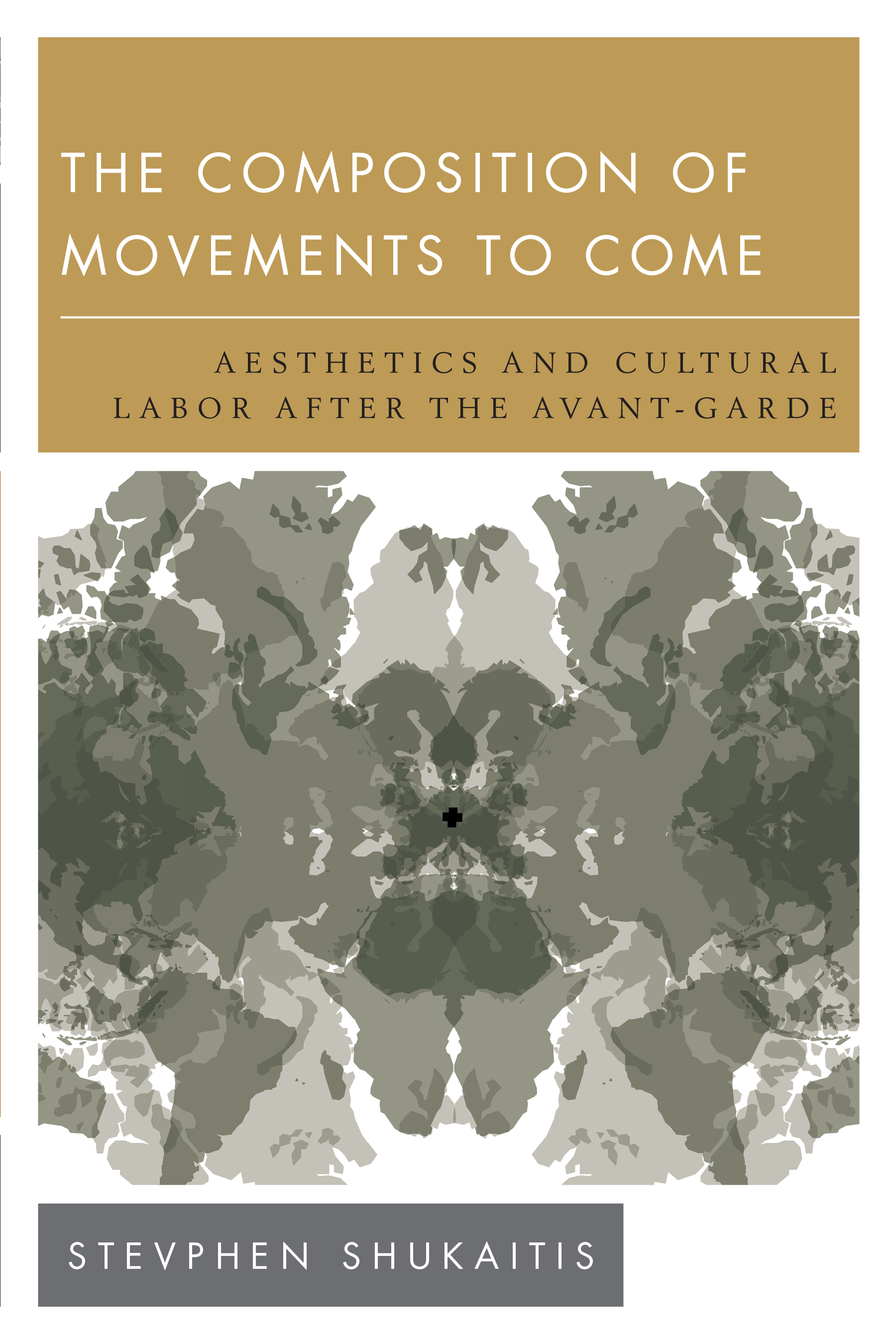Stevphen Shukaitis: The Composition of Movements to Come: Aesthetics and Cultural Labor after the Avant-Garde (2016)
Filed under book | Tags: · aesthetics, affect, antagonism, art history, autonomy, avant-garde, capitalism, class, creativity, everyday, imagination, immanence, labour, marxism, media, organization, situationists, strategy, value

“How does the avant-garde create spaces in everyday life that subvert regimes of economic and political control? How do art, aesthetics and activism inform one another? And how do strategic spaces of creativity become the basis for new forms of production and governance?
The Composition of Movements to Come reconsiders the history and the practices of the avant-garde, from the Situationists to the Art Strike, revolutionary Constructivism to Laibach and Neue Slowenische Kunst, through an autonomist Marxist framework. Moving the framework beyond an overly narrow class analysis, the book explores broader questions of the changing nature of cultural labor and forms of resistance around this labor. It examines a doubly articulated process of refusal: the refusal of separating art from daily life and the re-fusing of these antagonistic energies by capitalist production and governance. This relationship opens up a new terrain for strategic thought in relation to everyday politics, where the history of the avant-garde is no longer separated from broader questions of political economy or movement, but becomes a point around which to reorient these considerations.”
Publisher Rowman & Littlefield, London & New York, 2016
New Politics of Autonomy series
ISBN 9781783481736, 1783481730
xx+176 pages
Reviews: Gregory Sholette (Critical Inquiry, 2015), Marc James Léger (Afterimage, 2016), Martin Parker (Culture Machine, 2017).
PDF (4 MB)
Comment (0)Chantal Mouffe: The Democratic Paradox (2000–) [EN, ES, PL]
Filed under book | Tags: · agonism, agonistic pluralism, antagonism, deliberative democracy, democracy, ethics, neoliberalism, philosophy, pluralism, politics, social democracy

“A new understanding of democracy that acknowledges the inescapable and essential antagonism in its workings.
From the theory of ‘deliberative democracy’ to the politics of the ‘third way’, the present Zeitgeist is characterized by attempts to deny what Chantal Mouffe contends is the inherently conflictual nature of democratic politics. Far from being signs of progress, such ideas constitute a serious threat to democratic institutions. Taking issue with John Rawls and Jürgen Habermas on one side, and the political tenets of Blair, Clinton and Schröder on the other, Mouffe brings to the fore the paradoxical nature of modern liberal democracy in which the category of the ‘adversary’ plays a central role. She draws on the work of Wittgenstein, Derrida, and the provocative theses of Carl Schmitt, to propose a new understanding of democracy which acknowledges the ineradicability of antagonism in its workings.”
Publisher Verso, London, 2000
ISBN 1859842798, 9781859842799
143 pages
The Democratic Paradox (English, updated on 2017-10-16)
La paradoja democrática (Spanish, trans. Tomás Fernández Aúz and Beatriz Eguibar, 2003, added on 2020-10-23)
Paradoks demokracji (Polish, trans. Wojciech Jach, Magdalena Kamińska, and Andrzej Orzechowski, 2005, added on 2020-10-23)

